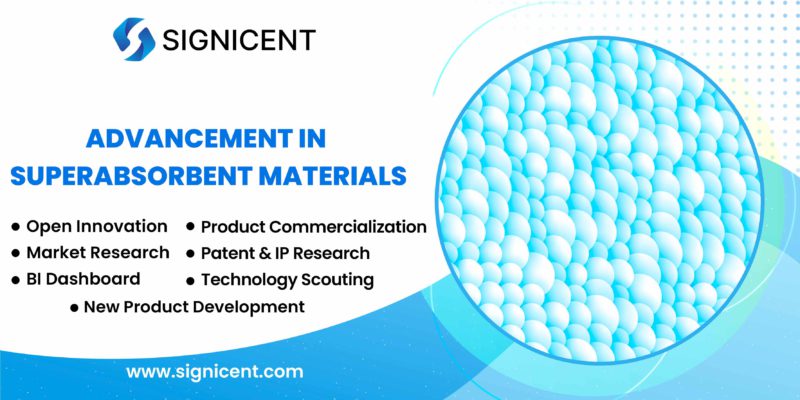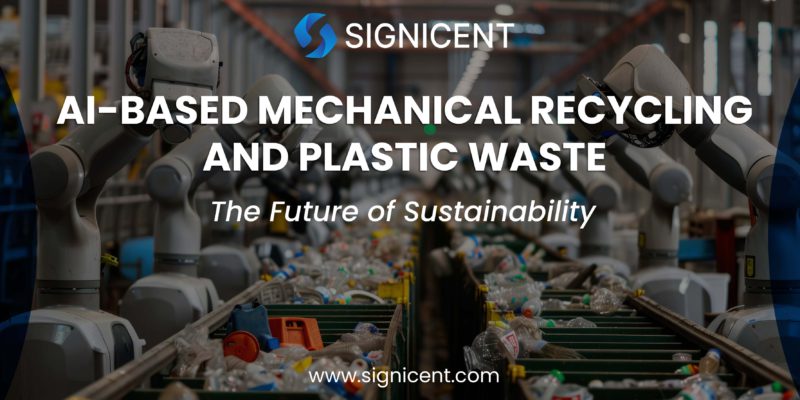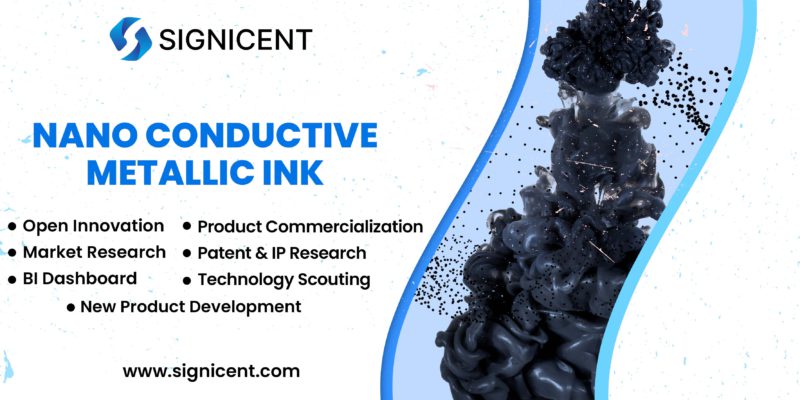Objective:
This research aims to investigate advancement technology research by exploring sustainable alternatives to both Superabsorbent Polymers (SAPs) and Silicone coated Release Papers.
This investigation aims to shed light on various innovations and research endeavors that have contributed to the development of sustainable superabsorbent polymers boasting enhanced properties when compared to conventional variants. Simultaneously, the study will place a strong emphasis on identifying alternative solutions that can effectively supplant the use of silicone in release papers, thereby promoting recyclability and biodegradability.
To achieve these objectives, the study will adopt a comprehensive approach, encompassing the following key components:
Innovations and Enhanced Properties of Sustainable SAPs:
The study will meticulously identify and analyze recent breakthroughs and research undertakings in the realm of sustainable superabsorbent polymers. Special attention will be directed towards innovations that have resulted in SAPs with properties surpassing those of traditional polymers. This exploration will provide insights into the cutting-edge advancements that have paved the way for more efficient, eco-friendly, and high-performance superabsorbent materials.
Alternatives to Silicone in Release Papers:
In line with the pursuit of sustainability, the study will conduct a thorough investigation into alternative solutions that can effectively replace silicone in the context of release papers. By scrutinizing a range of materials, technologies, and approaches, the study will contribute to the identification of feasible alternatives that align with the principles of recyclability and biodegradability. This segment of the research will be crucial in identifying pathways for reducing the environmental impact associated with release paper production and disposal.
White Space Analysis of Superabsorbent Polymers:
An integral part of the study involves analyzing the market perspective of superabsorbent polymers. This entails a comprehensive evaluation of the current market landscape, including market size, growth trends, key players, and emerging opportunities. By providing a detailed understanding of the market dynamics, the study will enable stakeholders to make informed decisions regarding the adoption and commercialization of sustainable superabsorbent polymers.
Challenges
Silicone-based release coatings pose challenges that impact recycling and the environment:
- Recycling Complexity: Silicone bonds are hard to break, making recycling of coated liners difficult.
- Persistent Waste: Disposed liners create enduring environmental waste due to slow degradation.
- Long-Term Impact: Environmental harm persists for years, affecting ecosystems and water bodies.
- Resource Inefficiency: Production and disposal waste resources, exacerbating the environmental footprint.
- Regulation and Sustainability: Industries may struggle to meet regulations and sustainability goals, facing higher costs and risks.
Each year Signicent provides consultancy to hundreds of organizations to help transform their innovations to value.
Solutions
A groundbreaking research project has emerged in Canada, addressing a significant challenge by introducing alkylated phosphorylated fibers as a solution for release paper production. This breakthrough offers both environmental sustainability and cost-effectiveness.
The process involves several crucial stages:
- Enhancing Cellulosic Fibers: Researchers utilized phosphate esters within molten urea to phosphorylate old corrugated cardboard (OCC) fibers.
- Fiber Modification: The phosphorylated fibers underwent alkylation, involving acid chlorides and a mild base.
- Coating Solution Formulation: A specialized coating solution was developed, incorporating the alkylated phosphorylated fibers according to a specific composition outlined in the provided table.
- Application of Coating: The formulated coating solution was applied to OCC sheets using a variable speed drawdown coater. This was done at room temperature and atmospheric pressure, with the coater’s speed set to 10 m/min.
Superabsorbent Biopolymers by Sparkle
Sparkle, an India-based enterprise, commits to offering a diverse selection of environmentally conscious and innovative products made from the highest quality ingredients.
Sparkle has created advanced starch and polysaccharide-based hydrogels that excel in achieving the targeted absorption capacity and absorption rate.
These hydrogels also possess the ideal particle size, porosity, strength, and stability when swelling occurs or during storage. The research also prioritized enhancing critical performance metrics like centrifuge retention capacity (CRC), absorption under load (AUL), and environmentally friendly traits such as biodegradability with no harmful residue, as well as maintaining pH-neutrality post-swelling.
Key players
In August 2021, LG Chem achieved a significant milestone by successfully producing and distributing a substantial quantity of bio-balanced Super Absorbent Polymer.
This pioneering effort marked a crucial step towards enhancing resource circulation and achieving carbon-neutrality. LG Chem’s commitment to sustainability was evident as they harnessed eco-friendly materials to create hygienic essentials like diapers and sanitary pads.
Market research
According to Signicent’s Market Intelligence, the biodegradable superabsorbent materials market, valued at approximately $ 157.7 million in 2023, is anticipated to expand significantly.
Projections indicate that by 2028, it could attain a substantial size of $ 213.8 million, reflecting a steady growth rate with a compound annual growth rate (CAGR) of 6.27% throughout the analysis period.


